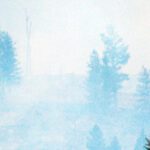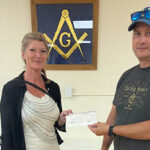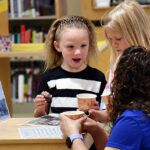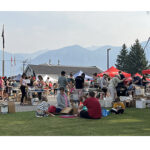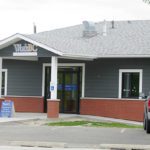Home »

We’ve only seen the beginning of this
 “Perceptions,” by Gerry Warner
“Perceptions,” by Gerry Warner
Op-Ed Commentary
A new reality! And one that it looks like we’ll be living with for quite a while.
This hit me like a sledgehammer Friday as I crossed Second Street South around 8 a.m., heading for my daily exercise routine on the grotty, old, wooden staircase that leads down to Street Angels and the Rec Plex.
I didn’t see a soul. Not on 2nd St. S, which is usually busy with commuters driving to work at that time of the day and students clogging the sidewalks walking, skateboarding or being dropped off by their parents at Laurie Middle School.
The silence was eerie. I could hear the whistle of a coal train that hadn’t even entered the city yet as well as the avian honking of a pair of Canada geese flying overhead on their way to Elizabeth Lake or some further destination. It was kind of nice, but spooky just the same.
Welcome to the COVID-19 era in Cranbrook.
It occurred to me almost immediately that in times like this there are benefits to living in a small burg at the foot of the Rockies in the remote southeastern corner of B.C., with the flesh pots of the big cities many hours away from our isolated locale. I don’t always feel this way as Cranbrook has often been given a rough ride in the travel press and has had names attached to it that I won’t mention here.
But looking up at the craggy pyramid of Mt. Fisher and the snow-blasted face of the rugged Steeples, I couldn’t help but think there could be worse places to call home.
We are, in fact, a “City on a Hill,” albeit a small one, but no less important for that just like the Biblical City on a Hill from Christ’s Sermon on the Mount. The phrase was used again by the Puritan minister John Winthrop when the Puritans were settling Massachusetts and wanted their colony to shine like a beacon of goodness and virtue to the world.
Ahhh, “goodness and virtue.” Is it a lack of both that has brought on this pandemic that is afflicting the globe? Many seem to believe so and I believe this goes a long way to explain the sea of intolerance, discord and bitterness enveloping our civilization today. I don’t particularly subscribe to this belief, but I can understand why many people feel this way.
Just look around and what do you see whether you live in Cranbrook, Los Angeles or Rome? In all of these cities, you see conspicuous consumption and abject poverty side-by-side with little in between other than anger and fear. The one percent fears the unwashed masses want to get their fingers on their vast wealth and the homeless just want to get their fingers on a sandwich.
I was in San Francisco last year and I offered a one-legged homeless man a dollar when he pan-handled me. Angrily, he threw it back at me and swore it wasn’t enough. He was, in fact, right. It wasn’t enough and all I had accomplished with my offer was to stoke his anger leaving me feeling confused and chagrined.
But that’s where we are today. Many with too much. Many more with too little and no one knows how to bridge the gap. It’s the same with climate change. Some, usually the wealthy, don’t recognize it. Some do acknowledge it but don’t care because they want to become wealthy too. Millions of others in the world just want food in their stomachs and a roof over their heads. Any roof will do.
Now, the real irony here, is that both of these groups need each other. The one per centers need customers that can buy their products and services and the great unwashed need jobs that pay enough to put food on their tables, clothes on their backs and a roof overhead. You’d think it would be relatively easy to work out a system that would benefit both parties but we’re not doing a very good job of it and the gap between the ins and the outs is growing wider.
This is the view I see from my city on a hill and it doesn’t give me much optimism. Oh, we’ll probably survive this pandemic with relatively few deaths. But there will be more pandemics and the next one may be worse. Far worse like the 1918 Spanish Flu and the Bubonic plague which killed in the millions, not thousands. If we don’t learn now, what will be our chances in the future?
It’s a new reality. Let’s learn from it.
– Gerry Warner is a retired journalist who won’t be going to San Francisco again any time soon. Maybe it’s just as well.
